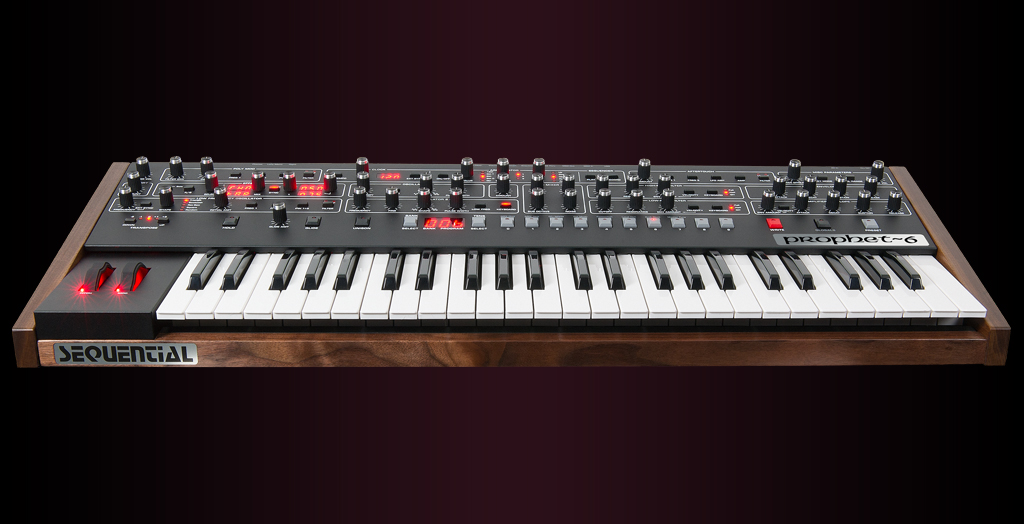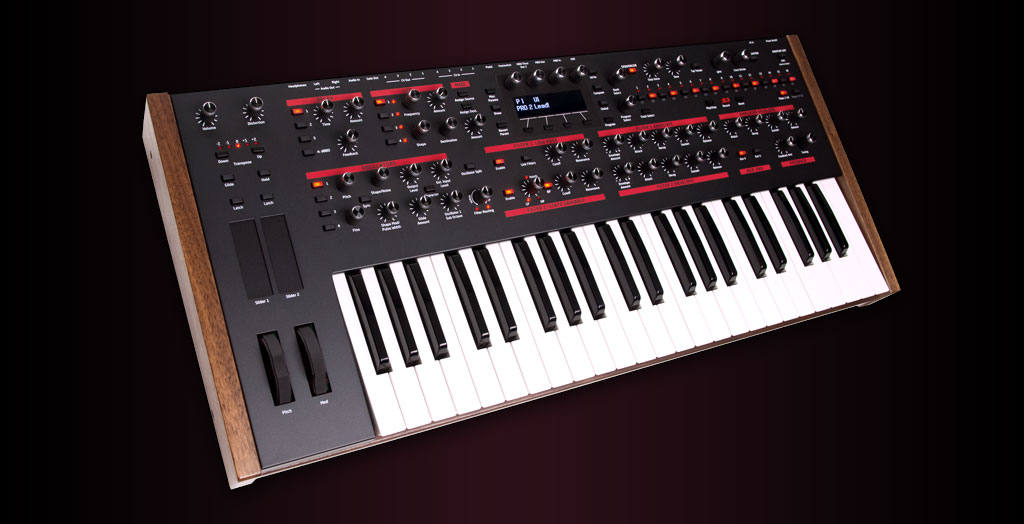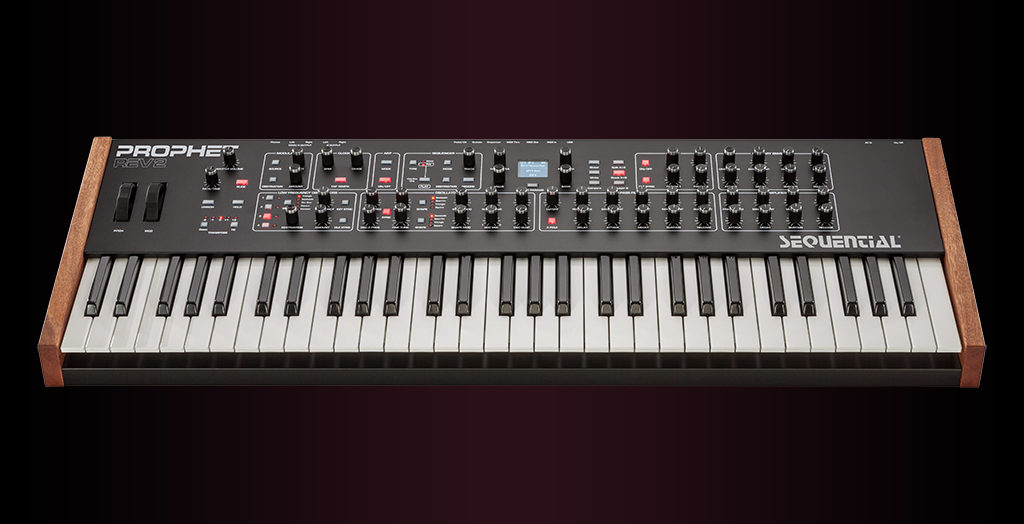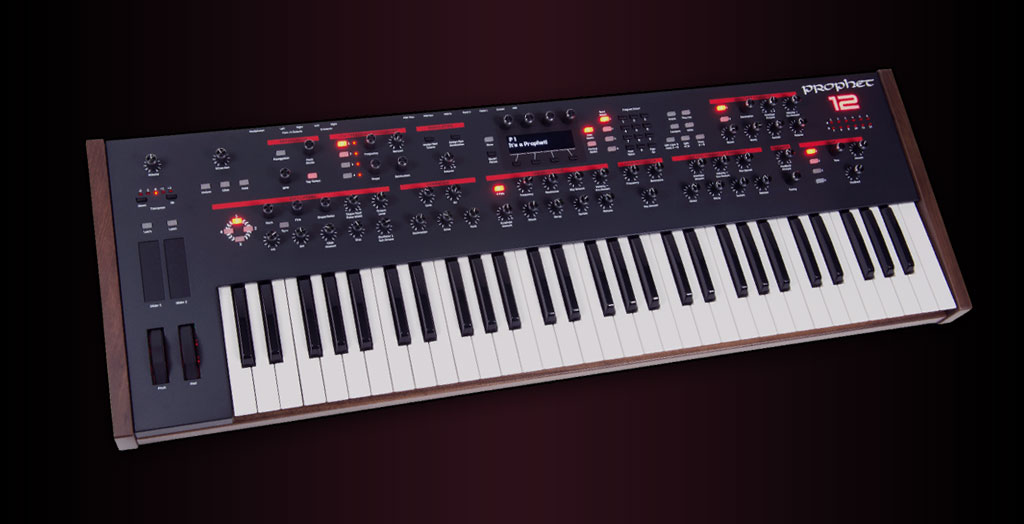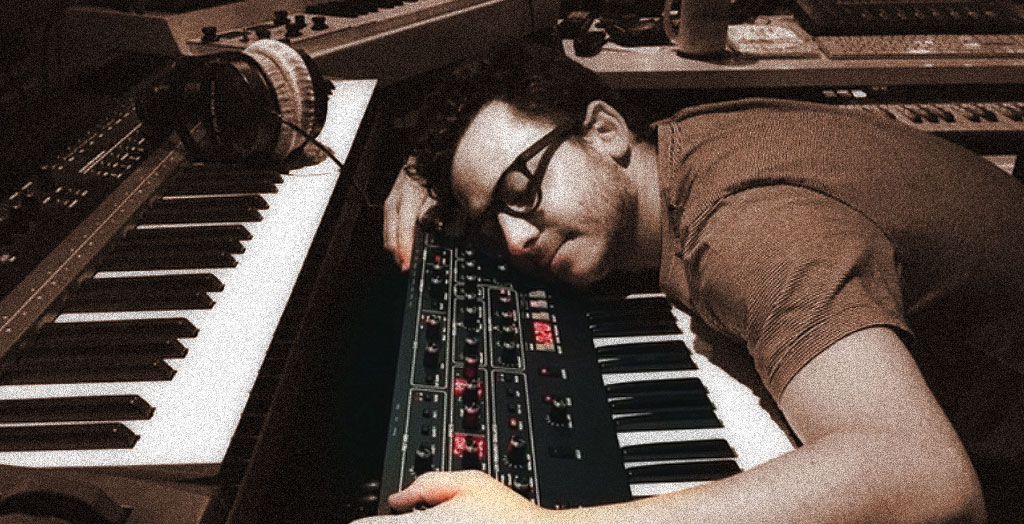
Featured Artist Ian Hultquist
Gear Used
SEQUENTIAL INTERVIEW – IAN HULTQUIST
Ian Hultquist is an American composer and producer based in Los Angeles, CA. Over the past few years he has made a name for himself composing the scores for numerous films, documentaries and TV shows.
Ian started his career in music as a founding member of the band Passion Pit, which started in Boston, MA where he was studying film scoring at Berklee College of Music. He spent many years touring around the world and honing his productions skills as a music director, and working on remixes for artists such as Portugal the Man, Imagine Dragons, Tegan & Sara and OK GO. In 2014 he, along with his wife and fellow composer Sofia Hultquist (aka Drum & Lace), relocated to Los Angeles in order to fully dedicate himself to working in music for film.
He has built a lasting working relationship with renowned directors in the film and documentary world such as Andrew Rossi (Ivory Tower, The First Monday in May) Erin Lee Carr (Mommy Dead & Dearest) and Alistair Legrand (Clinical). In 2018 alone, Ian had four feature films being released theatrically including Love & Bananas: An Elephant Story (dir. Ashley Bell, Abrorama), The Gospel According to André (dir. Kate Novack, Magnolia Pictures), A-X-L (dir. Oliver Daly, Lakeshore/Global Road) and Assassination Nation (dir. Sam Levinson, NEON/AGBO).
In 2016 Ian formed Little Twig Records, an imprint label focused on releasing soundtracks for Film and TV.
We chatted with Ian about his music.
How did you first get started with music? Were you a self-starter or was it something that you grew up around?
I first started playing music as a kid when I was in the fifth grade, as an alto-saxophonist in the school band. No one in my family was a musician, but I was always attracted to the idea of music and wanted to learn more about it. So I jumped in and had a lot of fun doing that for a couple years, until I got my first guitar and then immediately ditched the sax to play pop and punk music. I would spend hours just figuring out how to play songs I listened to on the radio. As soon as I was comfortable enough to play a few chords, I started forming bands with friends just so we could make some noise together. I’m sure it sounded dreadful, but fortunately we had a lot of very tolerant parents that would allow us to play music in their basement so loudly it shook the house.
As I got older, music really started to take a more serious hold on my life. I was rarely without a guitar in my hand, or not talking about music with friends. I was never much interested in being a soloist either, so I was almost always part of the rhythm section in any group I played with. I was way more interested in how the band sounded as a whole, than being the loudest one in the room.
Some musicians have a “eureka” moment in their early years where the light bulb comes on and they realize “This is what I need to be doing.” Do you remember anything like that for you?
I feel like I’ve had a few of those moments, throughout the years as I’ve shifted from different areas of making music. The first, however, came when it was time to decide on colleges. I kinda knew it was going to come down to either studying art or music, both of which were a pretty enormous gamble in regard to actually turning into a career. Thankfully my family was extremely supportive in whatever decision I would make. I realized I spent more time playing guitar than drawing, so music it was! I was lucky enough to get accepted into Berklee College of Music in Boston.
I ended up going through a lot of self-discovery while I was there. I entered thinking I could just coast by writing songs and learning how to be a producer, but ended up leaving with a degree in film scoring, and starting a band with my friends called Passion Pit.
Tell us about your first synth.
My first serious digital synth was a Nord Lead 2x. I think there was something about the bright red color that I was attracted to, as well as having seen it on stage with most of the bands I liked at the time. Passion Pit was just starting to figure out how we would play our live shows, and we all decided to use hardware synths. The Nord was the first synth where I really started learning how to program and tweak sounds. However, I quickly jumped into my first analog synth which was a Juno 106. I am still deeply attached to that one, and don’t think it will ever leave my studio.
Do you usually design your own sounds? If so, how do you approach that?
I usually end up doing a bit of both. But any preset I come across always gets tweaked by me. Things move so quickly in film scoring that it all comes down to what sound I hear in my head and how fast I can get to it. There are a lot of modern synth plug-ins that are extremely useful for this, but I still record my hardware synths on every project I work on. If there is something very specific I’m hearing, I will jump to an init patch and get to work. But usually I can find something that’s either close to what I want or just so inspiring I’ll stay on that and play around a while.
What kind of things get you excited about an instrument?
I think there are two main things that inspire me: how it sounds, and how it makes me feel when I’m working with it. In other words, can I actually play this thing like it’s a living/breathing instrument, or is it always going to make me feel like I’m programming a computer? Most modern-day synths kind of live in between those two zones, but fortunately synth builders have had kind of a renaissance of creating amazing new instruments lately. The synths that really feel alive to me are the ones that really put a smile on my face.
When you get a musical idea how do you go about developing it?
Musical ideas can really come from anywhere. The rhythmic pattern of our washing machine always catches my ear. Or harmonizing with the hum of a lawnmower is surprisingly therapeutic. One of the first scores I ever did was for a film called Animals, and we had decided early on that we wanted the score to feel like it really belonged to the city of Chicago, where the story takes place. We went out one winter and walked around the city with a field recorder just capturing all sorts of sounds. Construction jackhammers, the L train, and so on. One of the best samples we caught was at the LA Zoo — we walked into the “big cats” hall and there was this animal making the most haunting sound. I was lucky enough to grab that and between laying it out on a sampler and stretching the sample out it became one of the biggest foundations for the score.
Do you have certain musical ideals? Certain things that you strive for?
I think something that I strive for is to always put attention and care into what I’m working on. In multimedia today, we end up working on a lot of different projects, each with sometimes completely different styles and approaches. I try to push myself so that if I’m writing in a style I’m super not familiar with, or I’m writing a commercial demo for some prescription drug that I can’t pronounce, I will still put the same amount of effort in. I think that’s the only way to make sure that your musical voice is heard.
Generally speaking, are you happier in the studio or on stage?
I really love playing music with people, however the touring life was just not right for me. Part of the reason I left Passion Pit in 2014 was because I felt like I’d had my fill of touring. I’ve played out a bit here and there over the past couple years, but I don’t think I’ll be jumping back onto a tour anytime soon.
Granted, when I am in the middle of multiple scoring projects and am working in the studio for over 12 hours a day, running off on tour starts to sound a little appealing again.
What are you listening to these days?
I just listened to the new Gesaffelstein record, and it’s pretty amazing. I really liked the new James Blake record as well. I also listen to a lot of film scores. Almost every composer I see interviewed says they never listen to film music, but I am not ashamed to say that I do all the time. I love hearing what other people are making. I think it’s interesting, and often inspiring.
What kinds of things inspire you — musically or otherwise. Has this changed much over time?
I really love film, although I guess that’s obvious. I was always a bit obsessed with movies when I was a kid – but I would end up spending all my time playing music. It’s funny that I didn’t realize film scoring was something I could do until I was at college and the light bulb went off. Great cinematography is incredibly inspiring to me. There was a Stanley Kubrick exhibit at LACMA a few years ago, and they had all these stills from his films blown up, sitting in a blacklight frame. I would have literally moved in if they had let me.
Do you have a musical bucket list?
I think I’ll always have the childhood dream of one day getting nominated for some prestigious awards, but in reality, if I can have my music make a strong connection with an audience, that’s what will really feel validating. If I can have a song, or score that can outlive a week on a Spotify playlist or a weekend release on Netflix, that will feel like I’ve accomplished something. Music and media get digested and forgotten so quickly now it feels even harder to make something impactful, but I think that’s the real dream.
Turning to a few gear-specific questions, what made you choose the Prophet-6 and how are you using it?
The P6 has been a mainstay in my studio since I got it back in 2015 (serial number 28!). It’s appeared on nearly every piece of music I’ve written since then. It really is such a workhorse. I love it for pads, leads, basses, sound design — everything. I’m constantly finding new sounds in it that are fresh and inspiring to my ears. It does a really interesting electric piano, as well as shimmery strings.
What’s one of your favorite things about it?
I think one of the best things about it, aside from the sound, is the design/layout. It’s so intuitive and quick I can almost always get the sound I want within a couple of minutes.
However, it’s sound design can get pretty deep as well, so it allows itself to be played for hours whenever I’m really feeling tweaky. You guys really made something special with that one. Also the effects. They are so useful and sound amazing. I almost wish there was a third bank to use sometimes because I have so much fun stacking them together.
Any interesting tricks or techniques you’d like to share?
I feel like people might already know this one, but you guys built a little easter egg into the synth that I love and have actually been able to use a few times. If you set the reverb to “Spring” and bang on the side of the synth it sounds like you’re shaking a real spring reverb. Love it.

